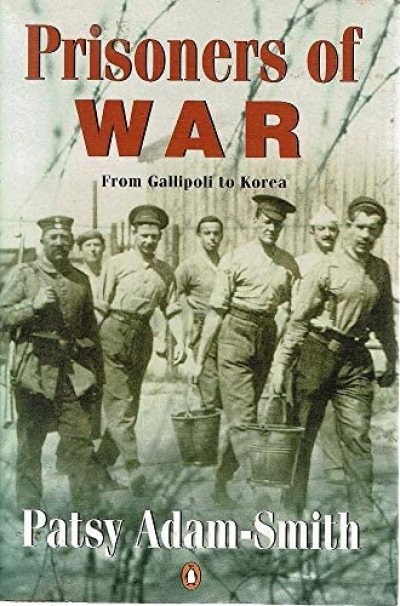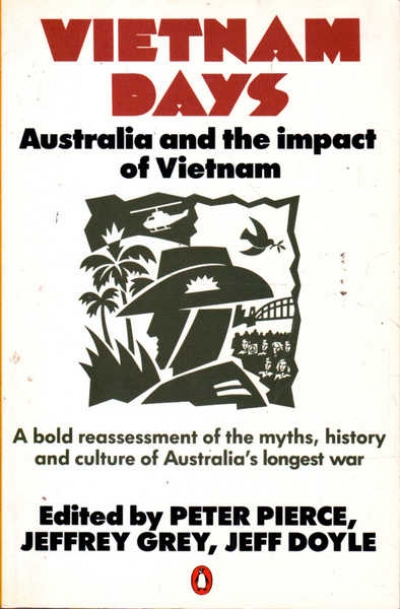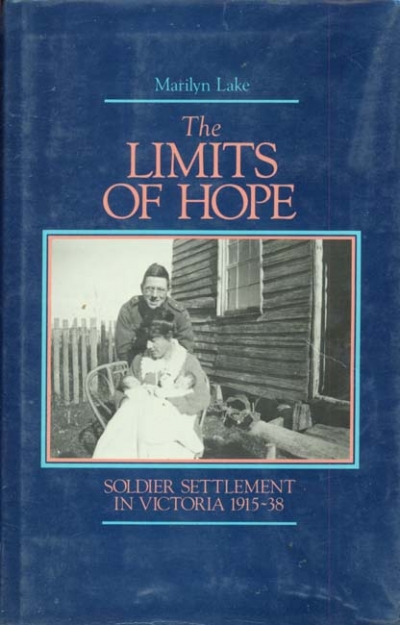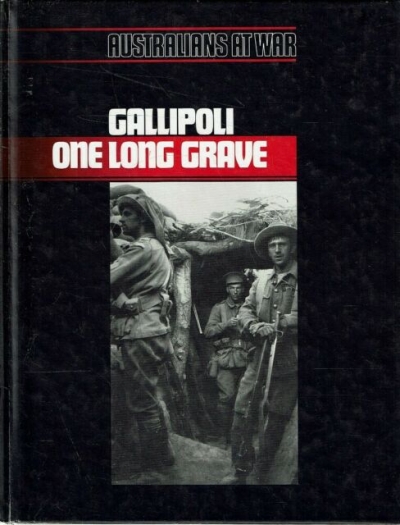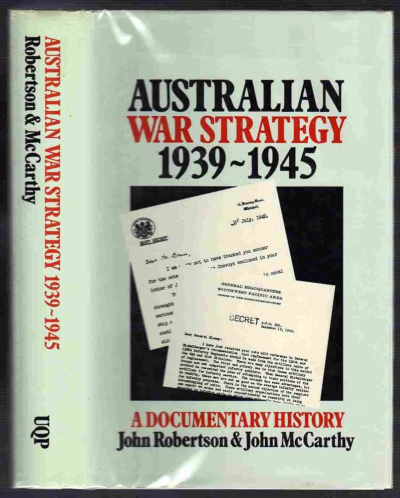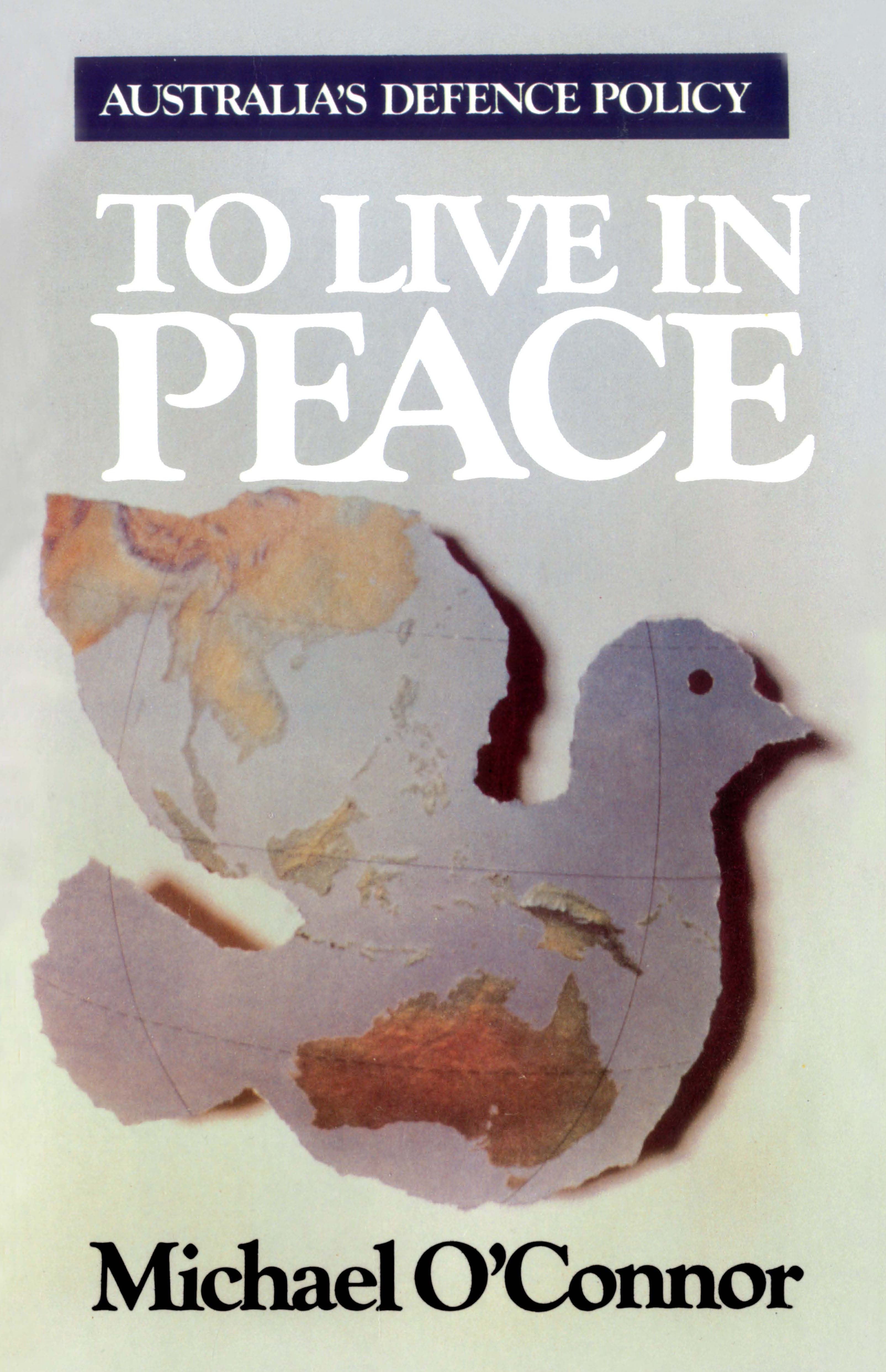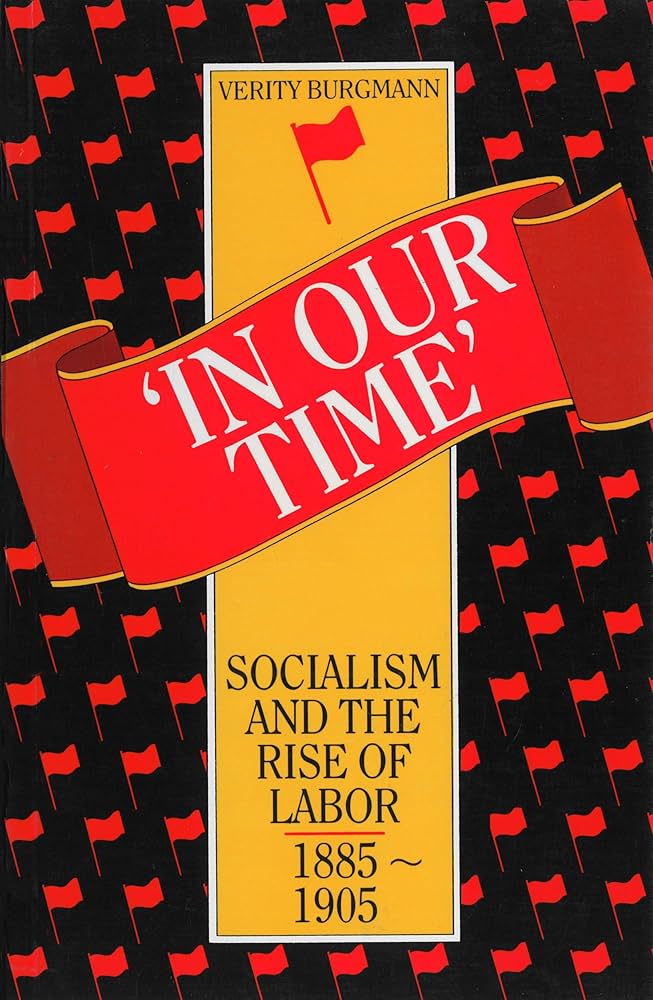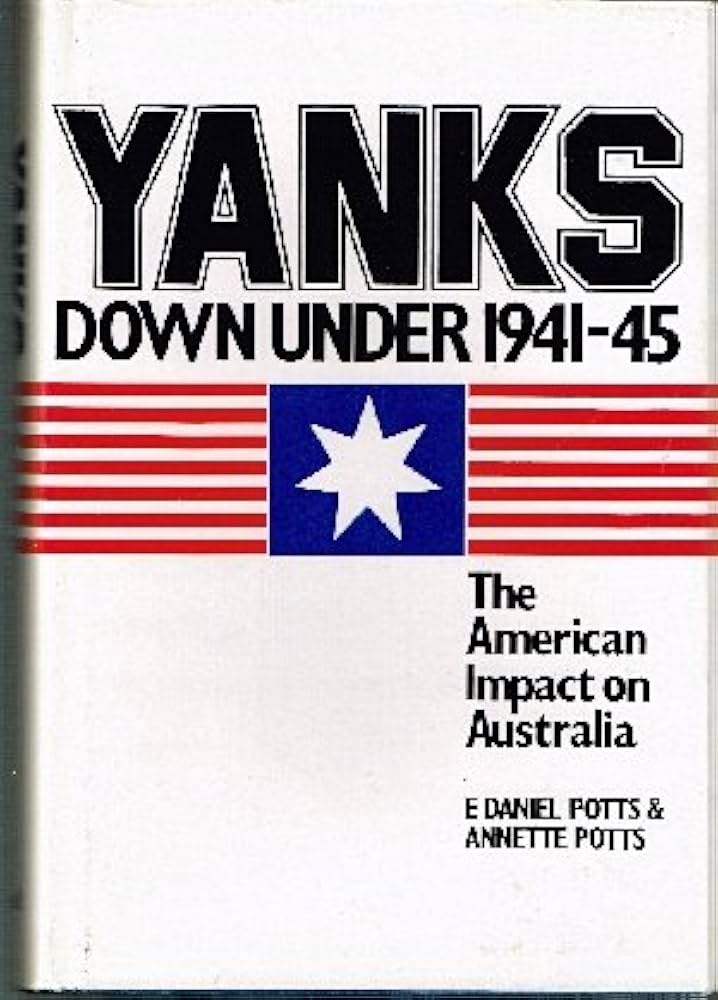War
Prisoners of War: From Gallipoli to Korea by Patsy Adam-Smith
The word history means many different things to different people. But generally speaking it entails an attempt by an author to explain, or make sense of, the past. That is, the historian gathers together the material, the evidence as it were, and from that draws a number of conclusions which we as readers are expected to believe. Prisoners of War, by Patsy Adam-Smith, encompassing three wars, from Gallipoli to Korea, is not that kind of history.
... (read more)Vietnam Days: Australia and the impact of Vietnam by Peter Pierce, Jeffrey Grey, and Jeff Doyle
In their introduction to this collection of essays, the editors state that Australia’s war experiences in Vietnam left some lasting legacies, but ones that were either unexpected or unintended: a loss of moral authority on the part of Australian conservative governments, a breakdown in the defence and foreign policy consensus about the ‘threat’ to Australia, the revival of populist politics and resistance to conscription, and increasing resistance to orthodox political views on other issues.
... (read more)The Limits of Hope: Soldier settlement in Victoria 1915–1938 by Marilyn Lake
‘The settlement of returned soldiers on cultivable land,’ wrote Ernest Scott in Volume XI of the Official History of Australia in the War 1914–1918 (1936), ‘is one of the most ancient policies of governments after wars.’ Soldier settlement in Australia after World War I is a major instance of a practice dating back as far as Assyria in the thirteenth-century BC. In early twentieth-century Australia, the need to raise an army entirely from volunteers, and the insatiable demands of modern war, made soldier settlement as much an inducement of recruitment as a means of calming things down afterwards, its traditional function.
... (read more)In a response to Peter Weir’s film Gallipoli published in Quadrant in 1982, Gerard Henderson observed that ‘recounting the story of the Anzacs has become something of a growth industry’. Five years on, the Gallipoli industry shows no sign of a downturn. The salvaging and publication of war diaries, letters and manuscripts that had long mouldered in museums, libraries and attics, the spate of ‘epic’ teledramas and ersatz war fiction (like Jack Bennett’s spin-off from the aforesaid movie), new historical studies and the resurrection of old ones such as C. E. W. Bean’s Official History and, at the other end of the scale, John Laffin’s Digger: The story of the Australian soldier (its subtitle magically changed to ‘The legend of the Australian soldier’), all attest to the enduring appeal of Australia’s military exploits to writers and filmmakers and to the subject’s ability to tap a popular audience.
... (read more)Australian War Strategy 1939-1945 by John Robertson and John McCarthy
Publishing collections of documents takes several forms and meets different needs. There are the great series of volumes that strive to leave nothing significant out, such as Mansergh’s Transfer of Power on Indian independence; there are the individual illustrative examples commonly published in the midst of a work of secondary prose; and there are the single volume or so works that strive to be more selective, so as to render the taste of the greater feast in more manageable proportions. These different approaches satisfy the intellectual appetite rather as a banquet, an after dinner mint and a cottage-pie respectively answer humankind’s more common hunger.
... (read more)The last few years have seen a major reorientation of Australian defence policy. The Guam doctrine of limited commitment declared by the United States, the withdrawal of United States forces from mainland Southeast Asia, the British withdrawal of forces east of Suez and the substantial development of the capacities of regional countries, especially the ASEAN states, to provide for their own security all had major implications for Australian defence policy. Australia’s defence planners (and successive Australian Governments) concluded that our first priorities should be the defence of Australia with increasing independence, the encouragement of a favourable security environment in our region and the maintenance of ANZUS cooperation. This reorientation effectively spelt the end of the so-called ‘forward defence’ era and initiated a challenging process of transition.
... (read more)It may still be useful to begin by describing what Hugh Lunn’s book does not set out to do, then there can be no misunderstandings as to whether or not he has achieved his objectives.
The book is not an account of the Vietnam War in the sense that it at any time attempts to explain who is fighting whom, for what reasons and by whatever tactics and strategies. You will learn next to nothing from Lunn about the causes of the war, the reasons for American and Australian involvement or anything else of a significant political, historical or military nature.
... (read more)In Our Time: Socialism and the rise of Labor 1885 – 1905 by Verity Burgmann
Although this book is written of a period in Australian history beginning exactly one century ago, a verse from a poem written in the 1890’s which Burgmann quotes on the last page of her book has poignancy for labor idealists today:
No wonder that the people turn, they are so oft betrayed
By men of mighty promises whom danger makes afraid.
O what’s the use of choosing chiefs to smash the Evil down,
If when they get into the van they end by ‘backing down’
Yet this is not a tale of betrayal and woe. It is the story of men and a few women who were in the vanguard of organised labor as it became politically influential; frustrated and frequently exhausted they may have been, and not a few succumbed to the ease of parliamentary privilege, but in this chronicle of their activities it is remarkable how rarely the canker of cynicism appears.
... (read more)Yanks Down Under 1941-45 by E. Daniel Potts, Annette Potts & Australia 1942: End of Innocence by Brian McKinlay
Yanks Down Under purports to examine the “American impact on Australia” during the second world war. After some 400 pages of text I was no wiser as to the nature of this impact. I could not decide whether the authors thought that the wartime American presence here had a permanent effect or whether it was significant but strictly temporary. In their final sentence the authors claim that the American presence led to the “development, years before the creation of any formal diplomatic and military agreements, of a lasting alliance”, but it is difficult to discover any basis for this assertion in the evidence that the authors provide. The bulk of the book is devoted to a mountain of almost entirely trivial detail which is not without interest, nostalgic or otherwise, but which falls far short of sustaining the argument that the authors apparently seek to advance.
... (read more)War has been the grand theme for so many human lives. It is, perhaps, one of the greatest ironies of human life that deprivation of one kind or another, like the loss of peace to war, is needed to give meaning, excitement and purpose to our lives. War has been such a catalyst in the lives of many Australians. It has been for so many the peak experience of a whole lifetime. War is so often dull, boring and monotonous but in an instant it becomes exciting, exhilarating and the very core of life. This terrible, wasteful and destructive human form of arbitration provides each individual with a unique set of experiences that can only be fully shared with ‘those who were there’.
... (read more)

